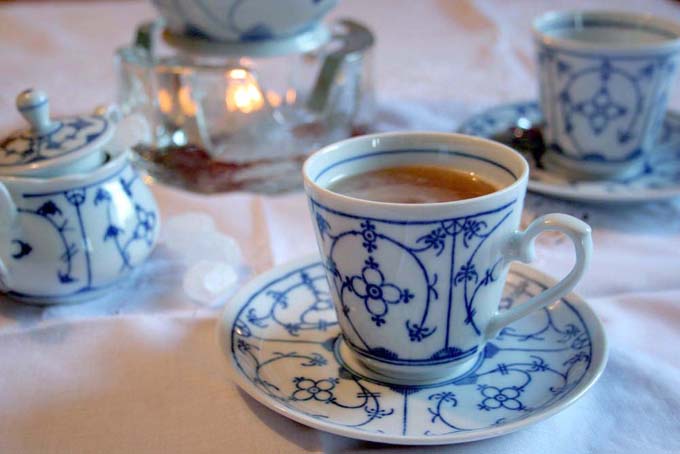Add description, images, menus and links to your mega menu
A column with no settings can be used as a spacer
Link to your collections, sales and even external links
Add up to five columns
Add description, images, menus and links to your mega menu
A column with no settings can be used as a spacer
Link to your collections, sales and even external links
Add up to five columns

The German East Frisian Tea Ceremony
August 09, 2018 2 min read
The German East Frisian Tea Ceremony
Dive into Tradition: The East Frisian Tea Ceremony Unveiled
Embark on a journey into the heart of German culture with the captivating East Frisian Tea Ceremony. This cherished ritual epitomizes the joy found in a humble cup of tea, deeply ingrained in the heritage of East Frisia.
Immerse yourself in the enchanting East Frisian Tea Ceremony, where every step is a tribute to tea's simple pleasures:
- Tea Preparation: Commence the ceremony by brewing a robust blend of East Frisian tea, a potent black tea predominantly crafted from Assam leaves. Utilizing a traditional teapot, the tea is meticulously steeped to perfection.
- Sugar and Cream Ritual: Elevate the tea's flavor profile with a touch of rock sugar, slowly dissolved beneath a cascade of cream. As the cream cascades in a spiral motion, it conjures a delightful cloud-like effect, enhancing the tea's allure.
- Savoring the Tea: Delight in the ceremony's centerpiece as the tea is served in cups adorned with intricate Dresmer Blue or East Frisian Rose patterns. Embrace the tradition of indulging in three cups of tea, each sip savored slowly and cherished.
Beyond Tea: The East Frisian Tea Ceremony transcends mere beverage consumption, evolving into a convivial gathering fostering camaraderie and relaxation. It serves as a testament to East Frisia's distinctive cultural tapestry.
Key Elements:
- Tea: East Frisian tea boasts a robust Assam-based blend, delivering a bold and aromatic flavor profile.
- Sugar: Rock sugar enhances the tea's taste, slowly dissolving to create a unique sensory experience.
- Cream: Added to the tea in a mesmerizing spiral, cream not only imparts a cloud-like appearance but also balances the sweetness of the sugar.
- Tea Set: Traditional East Frisian tea sets feature exquisite Dresmer Blue or East Frisian Rose patterns, adding a touch of elegance to the ceremony.
- Atmosphere: Embrace the relaxed and convivial ambiance of the East Frisian Tea Ceremony, fostering moments of connection and enjoyment with loved ones.
For an unforgettable immersion into German tradition, venture into East Frisia and partake in the captivating East Frisian Tea Ceremony. Embrace the serenity and warmth of this cherished ritual, celebrating the enduring allure of tea in a setting steeped in culture and camaraderie.
The Health Benefits of Tea: Milking or Not
Subscribe
Sign up to get the latest on sales, new releases and more …
